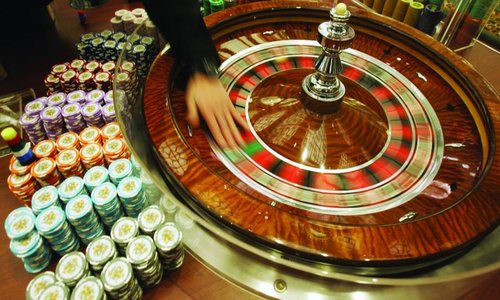Tax departments to keep strict eyes on casino businesses in Vietnam
Besides, cash is only allowed to be exchanged for chips in a casino at the cashier station or gambling tables, while the cashier station will be the only authorized place to give out prize money in exchange for chips.
Casino businesses have to prepare specialized strongboxes to contain cash or token, which have to be fully sealed before taking out of the cashier station or gambling machines and gambling tables.
Circular No.46, which will come into effect in February, is aimed to provide guidance on the management and supervision of tax collection for casino business activities under Government Decree No.03 adopted last January, providing a legal framework for casino businesses.
Government Decree No.03 is seen as the government’s effort to step by step legalize casino businesses and grant permission for locals to play at casinos in a 3-year pilot scheme. Previously, only foreign passport holders were allowed to gamble in the country’s 30 casinos and electronic gaming parlors.
Meanwhile, Decree No.03 will allow local Vietnamese citizens who are 21 or older and who have a regular income of at least VND10 million (US$441) per month to access and play at Vietnam-based casinos.
In order to access a casino in Vietnam, Vietnamese players must buy an entrance ticket at the cost of VND1 million (US$44) per 24 consecutive hours, or VND25 million (US$1100) per month.
The entire proceeds from ticket sales shall go to the provincial budget where the casino is located.
Casino companies must issue an electronic card to every Vietnamese player to track their identities and activities. Specifically, the card must record information about the player’s account code number, full name, ID/Passport number, an identification photo, times of entry/exit from the casino, the amount of money used for playing, and the financial winnings/losses for each playing session at the location.
Recently, Prime Minister Nguyen Xuan Phuc has given permission for Laguna Lang Co in Thua Thien-Hue province to operate a casino, following the decision of the investor Bayan Tree Holdings (Singapore) to raise the project’s investment capital to US$2 billion.
US$2 billion is also the minimum capital requirement to integrate a casino into an investment project, as stipulated by Decree No.03
In 2016, US$4-billion South Hoi An integrated casino resort located in the central province of Quang Nam started constructions through a collaboration among VinaCapital, Chow Tai Fook Enterprises (Hong Kong) and SunCity Group (Macau). The first phase of the project is expected to be completed by early 2019.
Once completed, it will be the second largest casino in Vietnam after the Grand Ho Tram Strip resort and casino complex located in the southern province of Ba Ria-Vung Tau.
Additionally, there are other 03 billion-dollar casino projects in the pipeline at Van Don, Bac Van Phong and Phu Quoc.


 English
English




